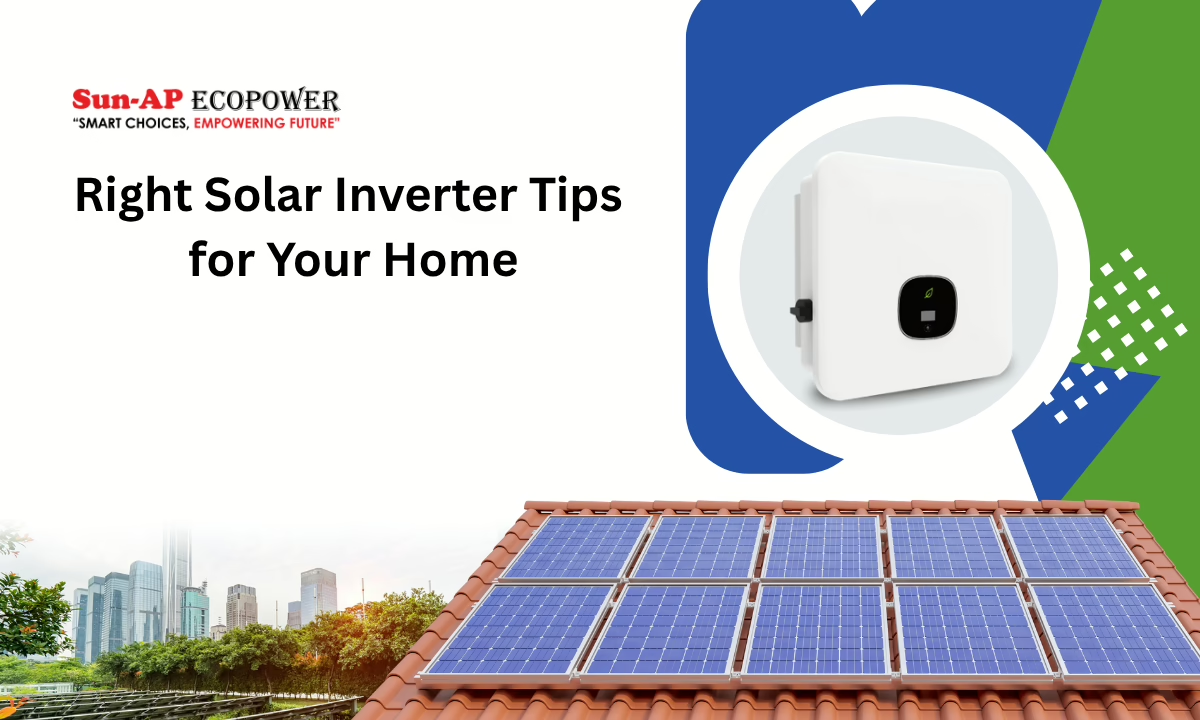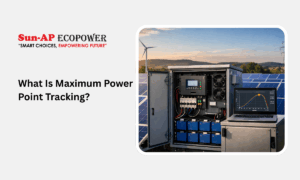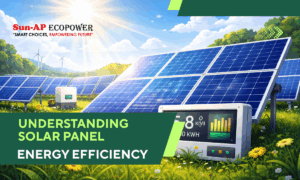Solar power inverter selection is one of the most critical decisions you will make when installing a solar energy system for your home.
The inverter acts as the heart of your solar setup, converting the DC electricity generated by your panels into usable AC power for your household appliances.
With numerous options available through solar inverters dealers in India, choosing the right one can feel overwhelming. But what if we told you that understanding just a few key factors could simplify this entire process?
Understanding Solar Power Inverter Types
Before diving into selection tips, we need to understand the different solar power inverter types available in the market.
- String inverters are the most common type, connecting multiple solar panels in a series. They are cost-effective and ideal for homes with unshaded roofs.
- Microinverters attach to individual panels, offering better performance in partially shaded conditions but at a higher initial cost.
- Hybrid Inverters combine solar inverter functionality with battery storage capability, making them increasingly popular for homes seeking energy independence.
Understanding these types helps you narrow down which residential solar inverter suits your specific needs.
Assess Your Home’s Energy Requirements
- The first step in selecting a house solar inverter is calculating your daily power consumption.
- List all your appliances and their wattage, then estimate how many hours each runs daily.
- For example, a typical Indian household might consume 15-20 units (kWh) per day, requiring an inverter capacity of 5-7 kW.
- Don’t forget to factor in future expansion plans. If you are planning to add an electric vehicle or more appliances, size up accordingly.
We recommend adding a 20-25% buffer to your calculated requirement for optimal performance.
Match Inverter Capacity With Solar Panel Output
The relationship between the inverter and solar panel capacity is crucial for system efficiency.
Your inverter capacity should generally match 75-100% of your total solar panel capacity. For instance, if you install 6 kW of solar panels, a 5-6 kW inverter would be appropriate.
Undersizing the inverter slightly (90-95% of panel capacity) can actually be beneficial in most regions, as panels rarely operate at peak capacity.
This approach, called “DC oversizing”, maximizes inverter utilization and improves overall system economics.
Consider Battery Compatibility
If you are planning for backup power or want to store excess solar energy, battery compatibility becomes essential. The best hybrid solar inverter in India offers seamless integration with lithium-ion or lead-acid battery banks.
Check whether the inverter supports the battery voltage and capacity you intend to install. Some hybrid inverters come with built-in charge controllers, while others require external components.
We’ve seen many homeowners regret choosing non-hybrid inverters when they later decide to add battery storage.
Evaluate Efficiency Ratings
Inverter efficiency directly impacts how much solar energy actually powers your home. Look for inverters with peak efficiency above 97% and weighted efficiency (European or CEC efficiency) above 96%. The best solar inverter in India typically achieves 97.5-98% peak efficiency.
Even a 2-3% difference in efficiency can translate to significant energy losses over the 25-year lifespan of your solar system. Higher efficiency also means less heat generation and potentially longer equipment life.
Check Warranty And After-Sales Support
A robust warranty indicates the manufacturer’s confidence in their product quality. Most reputable residential solar inverter manufacturers offer 5-10 year standard warranties, with options to extend up to 25 years.
But a warranty is only valuable if backed by reliable service. Research the manufacturer’s service network in your area. Connecting with established solar inverters dealers in India ensures you have local support when needed.
Ask about response times, replacement policies, and availability of spare parts before making your decision.
Assess Monitoring And Smart Features
Modern solar power inverters for the home come with advanced monitoring capabilities that shouldn’t be overlooked. Wi-Fi or cellular connectivity allows you to track system performance in real-time through smartphone apps.
These features help identify issues quickly, maximize energy savings, and provide valuable consumption insights. Some inverters offer smart grid compatibility, preparing your home for future energy management technologies.
We believe monitoring features add tremendous value, even if they increase the initial cost slightly.
Factor In Installation And Maintenance
Consider the physical space required for your house solar inverter installation. String inverters are typically wall-mounted in garages or utility rooms, requiring adequate ventilation.
Ensure your chosen location protects the inverter from direct sunlight, moisture, and extreme temperatures. Maintenance requirements vary by type. String inverters generally need minimal maintenance, while some systems require periodic software updates.
Ask your installer about specific maintenance schedules and costs associated with your selected model.
Brand Reputation And Certifications
Prioritize inverters from established manufacturers with proven track records in the Indian market. Look for certifications like IEC standards, BIS approval, and compliance with local grid codes.
Reading reviews from actual users provides insights beyond marketing materials. Established solar inverters dealers in India can share experiences about different brands’ reliability and common issues.
Don’t compromise on quality to save a few thousand rupees; this is a long-term investment.
Budget Considerations
While cost shouldn’t be the only factor, it’s certainly important for most homeowners. Set a realistic budget that prioritizes value over the lowest price.
Remember that the inverter represents only 10-15% of your total solar system cost. The best hybrid solar inverter in India might cost more upfront, but it offers better returns through enhanced efficiency and battery storage capability.
Consider the total cost of ownership, including warranty, maintenance, and expected lifespan, rather than just the purchase price.
Final Thoughts
Selecting the right solar power inverter for the home requires careful consideration of multiple factors. By assessing your energy needs, understanding different inverter types, and prioritizing quality and efficiency, you will make an informed decision.
Working with experienced professionals and reputable companies like Sun-AP Ecopower ensures you receive expert guidance tailored to your specific situation.
The right residential solar inverter will serve your home efficiently for decades, making this decision well worth your time and attention.
Remember, connecting with trusted solar inverters dealers in India provides access to quality products and ongoing support for your solar journey.
Frequently Asked Questions
Q1: How do I choose the right solar inverter?
Choose based on your daily energy consumption, roof space, budget, and future expansion plans. Match inverter capacity to your solar panel output, prioritize efficiency above 97%, and ensure warranty coverage with local service support availability.
Q2: Is a 5 kW or 10kW inverter better?
It depends on your household consumption. A 5kW inverter suits homes consuming 20-25 units daily, while a 10 kW inverter serves larger homes with 40-50 units daily consumption. Calculate your actual needs before deciding to avoid oversizing or undersizing.
Q3: What size solar inverter do I need for my home?
Calculate your daily energy consumption in kWh, then multiply by 1.25 for a buffer. A typical Indian household needs 3-5kW for basic loads, 5-7kW for medium consumption, and 10kW or more for large homes with heavy appliances.
Q4: Which PV inverter should I choose for my solar system?
Choose string inverters for unshaded roofs and cost-effectiveness, microinverters for partial shading conditions, or hybrid inverters for battery backup needs. Consider efficiency ratings, warranty terms, monitoring features, and compatibility with your specific solar panel configuration.
Q5: What is the typical lifespan of a solar inverter?
Solar inverters typically last 10-15 years, which is shorter than solar panels’ 25-year lifespan. String inverters may need replacement once during your system’s lifetime, while quality hybrid inverters with proper maintenance can last 15-20 years.




